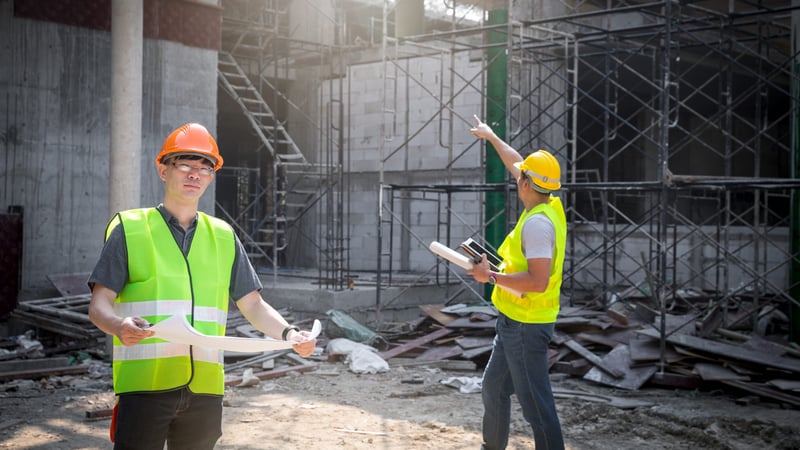By 2050, the United Nations estimates that 89% of the United States’ population will live in cities and urban areas.
When city growth is handled in a thoughtful way, urbanization offers a number of advantages to city residents, local economies, and even the environment:
- More job opportunities
- Economic diversification
- Increased tourism
- Improved public transportation systems
- Greater access to social services
But rapid growth can present a number of challenges for the city officials and building departments managing plan reviews, safety inspections, code compliance, and internal staffing.
Spikes in plan review activity and staffing shortages can create frustrating approval delays for developers, who need to keep their projects moving smoothly, and for the city, which loses revenue opportunity when high-value initiatives stall.
The Benefits of Leveraging Auxiliary Staff
Auxiliary building services staff is a budget-friendly supplemental solution for cities experiencing rapid growth and development. Here are six advantages of using auxiliary staff to keep projects moving forward.
1. Scalable Engagements Can Help Accelerate Plan Reviews
Normal ebbs and flows in permit application activity are to be expected – but with urbanization on the rise, and the American Rescue Plan Act going into effect, cities could soon see a major surge in plan review submissions.
Ballooning backlogs cause approval times to increase, frustrating residents and developers, but auxiliary staff can help you accelerate the plan review process by supporting the work of your in-house team, minimizing your backlog, and helping to keep projects moving. Scalable service models allow you to ramp up your auxiliary engagement as activity increases, and dial it back when the workload subsides.
2. Cost-Effective Ways to Address Staffing Issues
When building departments face staffing shortages, traditional avenues for managing backlog activity include hiring more full-time employees and implementing mandatory overtime for current staff.
But both options can be costly. Mandatory overtime is expensive and may cause employee burnout if used as a long-term solution. Hiring full-time employees comes with built-in costs:
-
-
- Recruiting and talent sourcing
- Hiring and onboarding (average cost per employee is $4,000)
- Training and continuing education
- Providing jobsite equipment
- Maintaining full-time salaries when workload decreases
-
Auxiliary staff eliminates recruiting, hiring, training, and equipment costs, and allows you to design your engagement based on volume of work, helping to alleviate budgeting issues associated with high backlog volume.
3. Support for In-House Staff
As backlogs grow, so does the pressure your in-house staff faces to chip away at a ballooning number of plan reviews. Combine that pressure with the stress of fielding complaints from frustrated residents and developers, plus the physical toll of working overtime, and you have a recipe for unhappy employees.
By expediting plan reviews and minimizing backlog volume, auxiliary staff relieves some of the burden on internal employees, helping to improve their overall work/life balance.
4. Access to Specialized Experts
The “Silver Tsunami,” America’s rapidly retiring workforce, is poised to create major knowledge gaps for building departments, particularly in highly specialized disciplines such as zoning, plumbing, mechanical, electrical, and fire protection review.
Like hiring any full-time employee, adding an in-house specialist to your team is costly and time-consuming, particularly if you’re limited to talent sourcing in your immediate area.
An auxiliary staff partner with access to a national workforce will tailor your outsourced team to meet your city’s unique needs, including specialized experts working remotely around the country.
5. Increased Growth and Revenue Potential
When the plan review process is optimized and developers can begin construction projects quickly, your city realizes the benefits sooner, including new jobs, more tourist activity, and increased tax revenue. And because developers want to work with high-potential cities that prioritize revenue-generating projects, they’re likely to continue submitting plans that ignite your community's growth.
This cycle of increased growth and revenue begins with plan review. Using auxiliary staff can help ensure faster turnaround times to mobilize high-value projects and keep the cycle in motion.
6. Improved Community Satisfaction
Faster plan review turnaround times for residential and commercial projects benefit the community as a whole. Supporting your building department with expert auxiliary staff can help reduce complaints about time between plan submission and approval, and increase the level of service your city provides.
As urbanization continues to increase, leveraging expert auxiliary staff can help keep growth initiatives on track for rapidly developing cities, all while maintaining budget stability, reducing the burden on building departments, and enhancing community satisfaction.


